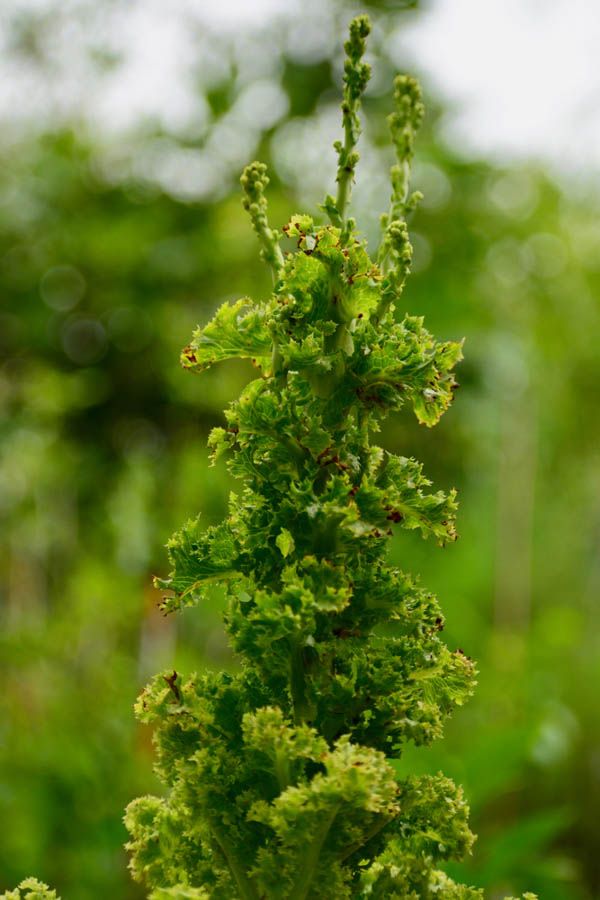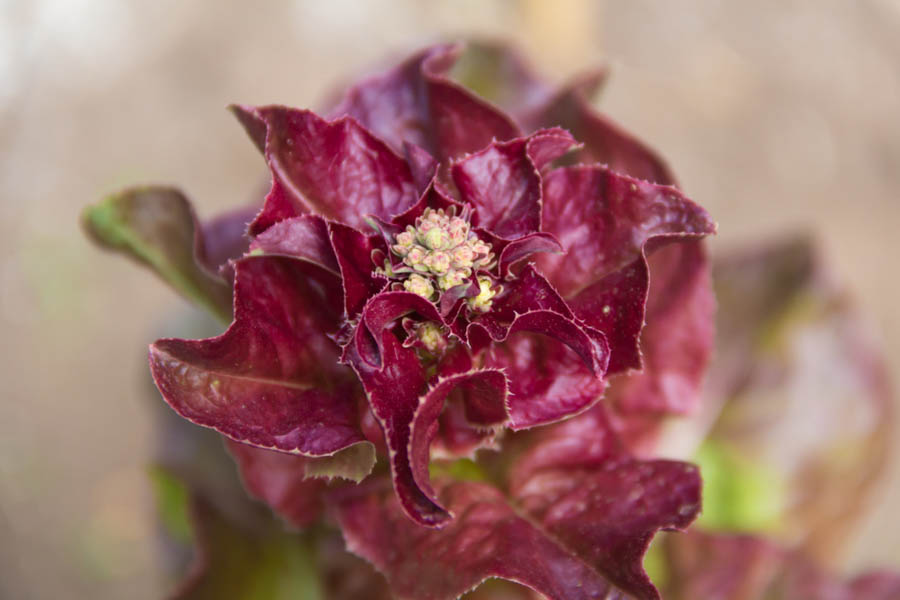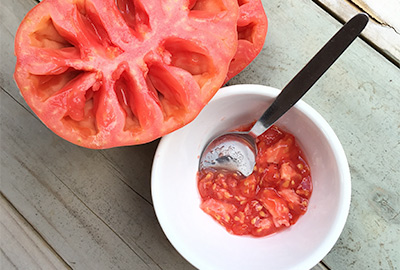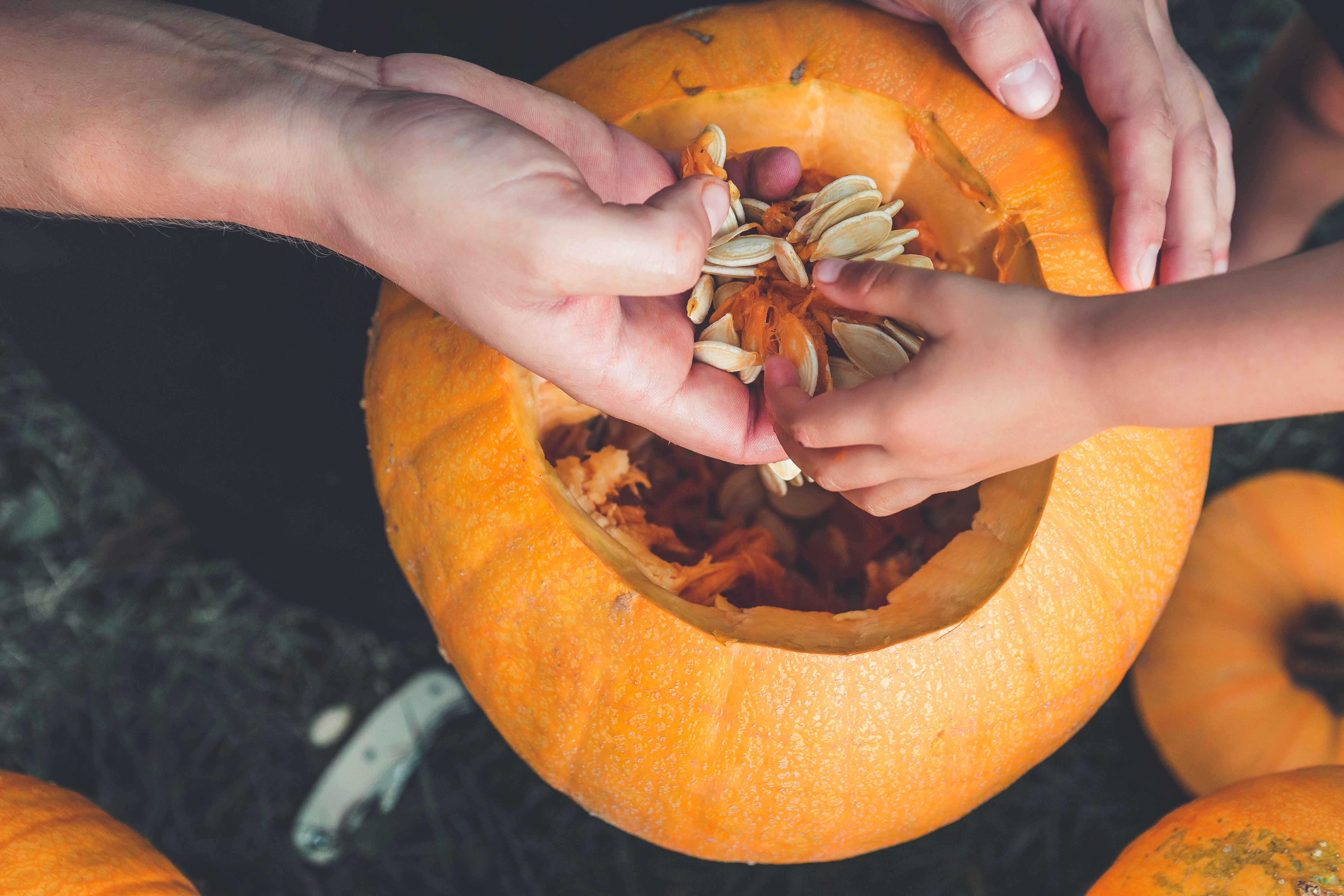Saving Seeds: Grocery Store Produce vs Home Grown
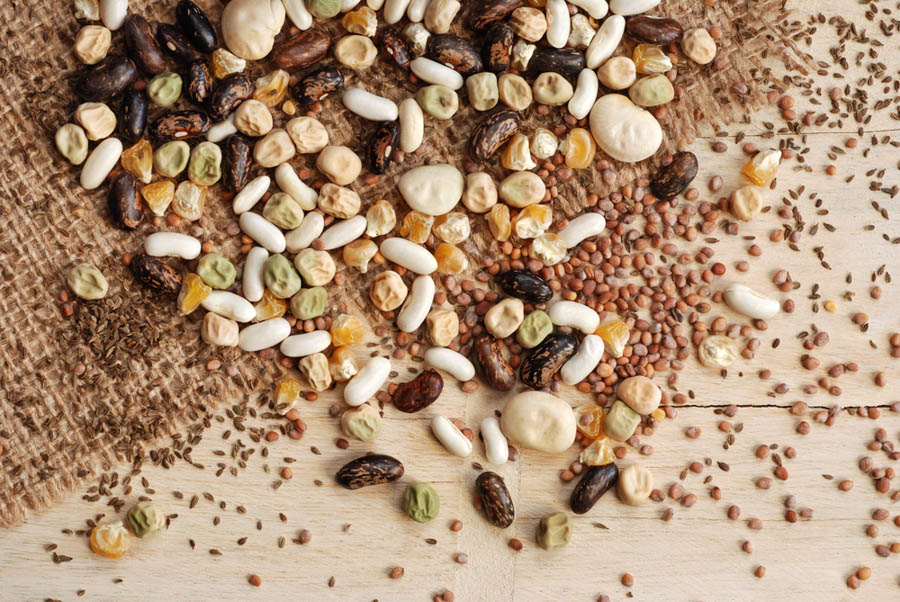
GardenZeus receives commissions for purchases made through links in this post. There is no additional cost to you.
Can you save the seeds from the vegetables you purchased from the grocery store or farmer’s market and use them to grow your summer vegetable crop? Probably not.
Most vegetables purchased at the grocery store are hybrids, that is, they are the offspring of two different varieties of the same species of plant, or of closely related species of plant. Most commercial growers, as well as many home gardeners, select hybrid seeds to achieve an intentional or controlled crossing of distinct genetic strains. For example, hybrids are often bred to have resistance to certain diseases or to tolerate adverse growing conditions. Hybrids do not reproduce true-to-type; offspring or seeds from a hybrid usually will NOT produce similar plants–or vegetables–as the parent. So, the seeds from the large, red bell pepper you just purchased from the grocery store will not produce similar large, red bell peppers.
Unlike hybrids, open-pollinated seeds reproduce true-to-type. As long as plants do not cross-pollinate with other varieties, seeds in each new generation will produce plants, vegetables, or flowers that are the same or similar to the parent, so they are ideal for seed saving.
An heirloom is an open-pollinated variety that has been in cultivation for decades – usually at least 50 years. The staying power of heirloom varieties often results from exceptional characteristics, such as flavor or vigor. Many heirloom varieties predate the advent of large-scale chemically-dependent agriculture, and are a natural match for small-scale organic gardening and seed saving. All heirloom varieties are open-pollinated, but not all open-pollinated varieties are heirloom.
Merchants at farmer’s markets are not necessarily able to confirm that the varieties they sell are open-pollinated. However, if a vegetable at a farmer’s market is labeled as an heirloom variety, you can be assured it is an open-pollinated variety.
The best way to get started saving seeds is to purchase open-pollinated seeds from a reputable seed company. Then, save the seeds to plant your next crop.
GardenZeus recommends open-pollinated, untreated, organically grown seeds. Seed sellers across the United States have been overwhelmed by the surge in demand resulting from the interest of home gardeners growing some portion of their own food due to the COVID-19 Pandemic. This surge has caused large back-orders and delays with many seed companies. Based on our experience, Botanical Interests, a trusted affiliate of GardenZeus, has an excellent selection of open-pollinated and heirloom seeds, although processing and shipping times are longer than usual.
GardenZeus recommends starting with a couple of plants where seed saving is relatively easy, such as lettuce and tomatoes. Both lettuce and tomatoes are self-pollinating; that is, pollen from the anther of a blossom transfers to the stigma of the same blossom on the same plant, so there is no possibility of cross-pollination. This may sound technical, but it is important: plants that are not self-pollinating–requiring bees to transfer pollen from one plant to another–are not, absent extraordinary measures on the part of the gardener, good candidates for seed saving.
Saving Lettuce Seeds
It’s easy to save lettuce seeds as most varieties of lettuce are open-pollinated. To save seeds, allow a few plant to bolt, that is go to flower and set seeds. To perpetuate the genetics of late bolting plants (the genetically desirable characteristic of heat tolerance), rather than early bolting plants (the genetically undesirable characteristic of heat intolerance), GardenZeus recommends that you save the seeds from the late bolting plants rather than the early bolting plants. After the flowers change to to seed heads, shake off the loose seeds and dry them indoors. A single lettuce plant can easily produce enough seeds for your next crop. GardenZeus recommends Black Seeded Simpson as an outstanding heirloom with excellent flavor that grows well in a variety of climates. For complete instructions for growing lettuce in your area, as well as additional variety recommendations, Go to GardenZeus and enter your zip code.
Close up of bolting lettuce plant.
Saving Tomato Seeds
Saving seeds from a delicious heirloom or favorite open-pollinated tomato is simple, and can provide you with more than enough seeds to plant next year, as well as plenty to share with your friends. Although tomatoes are generally self-pollinating, they do occasionally cross-pollinate, and genetic traits may vary from seed to seed and fruit to fruit. It may be important to save seeds from the earliest, largest, and best tomato fruits harvested from the healthiest and most-vigorous tomato plants. Allow the fruit to ripen fully on the plant before harvesting. Once you have harvested your tomatoes, prepare your seeds for saving by following the easy directions in The GardenZeus Guide to Saving Tomato Seeds
For a slicing tomato, try Beefsteak. Or grow one or more cherry tomatoes for snacking orand salads, such as Yellow Pear. For complete instructions for growing tomatoes in your area, as well as additional variety recommendations, go to GardenZeus and enter your zip code.
Saving the Seeds of Zucchini and Other Cucurbits
Saving seeds from vegetables in the cucurbit family, including vegetables commonly known as zucchini, summer squash, winter squash, and pumpkins, is more complicated than saving seeds from many other vegetables. For example, summer squash will cross readily with most other varieties of summer squash (Cucurbita pepo). And long distances between different summer-squash varieties or isolation is required to save seeds that remain true-to-variety across multiple plant generations. Home gardeners typically use isolation to save seeds. For the adventurous gardener wanting to save pumpkin seeds, see Saving Pumpkin Seeds: It’s Complicated.
Growing new pumpkins from pumpkin seeds can be tricky.
Other articles of interest:

